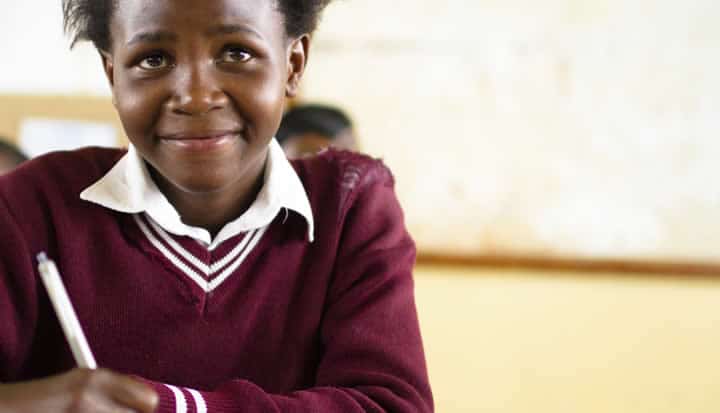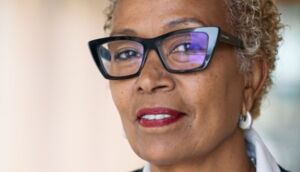Thirty-two million girls across the world have never been to school. A much larger number are dropping out and/or leaving school without basic literacy and numeracy skills.
There are numerous reasons why girls are missing out. Education is expensive – girls and their families simply may not be able to afford uniforms, textbooks and travel. Parents also balance the value of schooling against the loss of their daughter’s contribution at home to domestic work or childcare.
Schools are often too far away, particularly for girls who want to attend secondary school. Parents worry about their daughters’ safety in and on the way to class…And when they get there, there are too few female teachers, many teachers are poorly trained and in some places teacher absence is high.
The challenge of girls’ education is significant.
Many governments and NGOs are rising to this challenge and, increasingly, private sector organisations are joining their ranks.
Many companies are beginning to understand the value of having a stake in the education of girls in the developing world. More and more, the decisions being made around glossy board room tables are having a significant impact on the lives of the girls who sit in classrooms in some of the poorest areas of the world.
If, and how, the girls get to school, how they learn, how they are encouraged to stay on and how their teachers are trained and remunerated are, perhaps surprisingly, topics on the Board’s agenda
They are recognising the benefits this investment can have – for the girls, their families and communities, the wider economy and, yes, for their business.
The evidence is growing and it is compelling. Countries that have more well-educated women and girls are more stable and economically vibrant, contributing to communities that are better places for businesses and their employees to work.
Educated girls become more skilled employees, and a better educated consumer basis for products and services. They are healthier and can be more productive.
Moreover, learning and education are key goals of every developing country, and investment in the area can help businesses to enhance brand reputation and strengthen relationships with governments and local communities.
If all 1.6 million adolescent girls in Kenya completed secondary school the 220,098 adolescent mothers were employed instead of falling pregnant so early, the cumulative effect could have added US$3.4 billion on the Kenya’s gross income every year. This is equivalent to the entire Kenyan construction sector[1].
But this is an area where good business sense coincides with addressing a global challenge. Increasingly, companies around the world are recognising the financial and social returns of investing in girls’ education: by investing in girls’ education, businesses can gain employees, suppliers and distributors in their value chains who are literate, numerate, skilled, healthier and wealthier.
Through the Girls’ Education Challenge, the UK’s Department for International Development is offering the global business community the opportunity to help meet this challenge.
Up to £15m of match-funding will be provided to support strategic partnerships between business and other organisations who want to engage in this area.
Businesses that are interested will receive assistance to consider how the Girls’ Education Challenge may be relevant to their company and business objectives. They will have the opportunity to meet potential partners, explore new ideas, and develop proposals.
The Girls’ Education Challenge is asking companies across different sectors to set their most talented staff to work on this issue and to show leadership, innovation and a commitment to collaborate with others to deliver transformative and long–lasting change for girls in Africa and Asia.
To take part in the Girls’ Education Challenge or discuss this opportunity further, please email the team at: gi*********************@uk.com. More information can be found at www.dfid.gov.uk/gec
[1] Measuring the Economic Gain of Investing in Girls, The World Bank Human Development Network Children and Youth Unit & Poverty Reduction and Economic Management Network Gender Unit, August 2011










